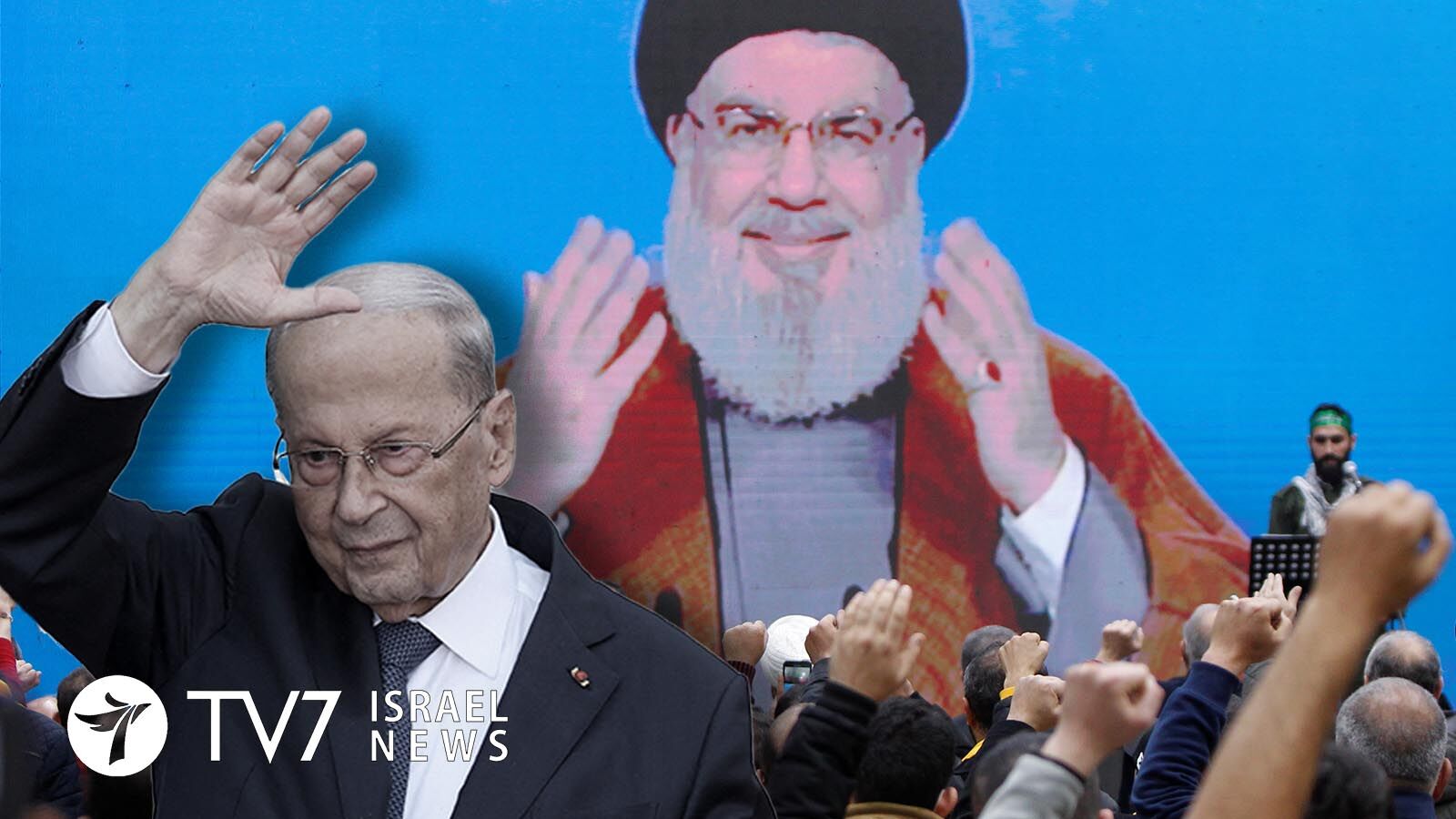The term of President Michel Aoun ends without a successor in sight.
By Erin Viner
Departure of the 89-year-old Christian president leaves a void at the top of a failing state.
Parliament has so far been unable to agree on Aoun replacement, who would have power to appoint new prime ministers, sign bills into law and approve government formations prior to a vote by parliamentary members (MPs). An additional complication is that just as during more than half of Aoun’s time in office- Lebanon is currently governed by a caretaker cabinet as the premier-designate has been trying for six months to form a government.
Aoun has been a deeply divisive figure. While he was adored by many Christians, who viewed him as their defender in Lebanon’s sectarian system, critics accuse him of enabling corruption and helping the Iran-backed Hezbollah terror organization secure power.
The path to the presidency began during Lebanon’s 1975-1990 civil war when Aoun served as commander of the country’s armed forces and head of one of two rival governments. He returned to Beirut after 15 years in exile, following the withdrawal of Syrian forces under international pressure following the 2005 assassination of former Prime Minister Rafik al-Hariri. Under his leadership of the Free Patriotic Movement (FPM), the party formed an alliance in 2006 with Hezbollah – which afforded important Christian backing to the armed paramilitary force.
Aoun’s 2016 presidency was endorsed by both Hezbollah and rival Maronite Christian politician Samir Geagea, in a deal that returned then-leading Sunni politician and son of the assassinated premier, Saad al-Hariri, to lead the government as Prime Minister.
During his six-year term, more than 80% of the Lebanese population has been pushed into poverty amid mass anti-government protests due to a devastating economic crisis that erupted in 2019; as well as the 2020 explosion that killed more than 220 people at the Beirut Port, caused by dangerous chemicals he later admitted he was aware had been stored there.
The former president also oversaw exploratory drilling by top energy companies in offshore blocks in 2020, although political infighting prevented further advancement in the energy sector.
As one of his major achievements and last acts in office, Aoun signed a United States-negotiated deal delineating Lebanon’s southern maritime border with Israel.
“We need to lift the country out of the deep rut that they (my rivals) put us in. Lebanon will not exit this hole, if it weren’t for the deal we did to delineate the the maritime border,” he told a crowd of supporters while leaving the Baabda Presidential Palace.
In spite of those threats by his ally, an interview with the Reuters news agency, Aoun ironically credited Hezbollah for its “useful” role in acting as a “deterrent” against any Israeli attacks during the maritime border talks.
It is as of yet unknown what Aoun has planned, but he also declared that the end of his tenure as president would not be the end of his political career. That message was seemingly echoed by MP and FPM leader Gebran Bassil, who said that while Aoun’s exit marks the beginning of “a new era,” it does not signal the end of his party’s role in the government.
“We are a movement that was built and lives on principles and dignity and among its people,” said Bassil, adding, “The end of the (Aoun’s) term is like a new beginning because our era will not finish, our era is the establishing of the state in Lebanon.”
